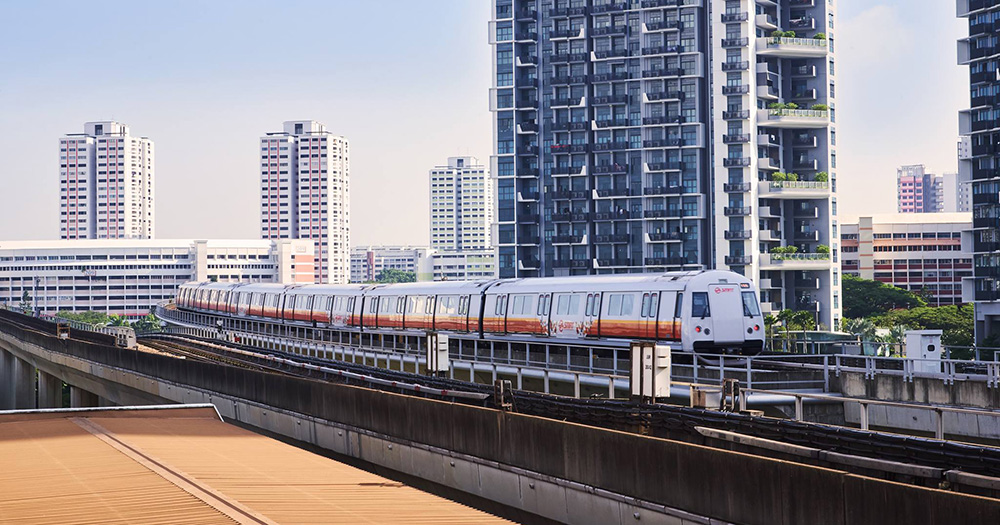The Public Transport Council (PTC) announced on Tues (Oct. 8) that they will be raising bus and train fares by 7 per cent.
The changes will kick in from Dec. 28, 2019.
This is the maximum allowable fare adjustment quantum based on the Council's fare formula, and is also the highest percentage increase in a single Fare Review Exercise (FRE).
This is also the highest percentage increase in fares since the fare formula was introduced in 1998.
Who will be affected?
Almost everyone.
Fares will be rising across the board, with commuters having to pay between four to 20 cents more per journey.
Regular commuters paying adult fare are the most affected, facing a nine-cent increase per journey.
For senior citizens, lower-wage workers, people with disabilities and students (Primary, Secondary, JC and ITE), fares will go up by four cents per journey.
People who pay cash fares will also have to fork out the most, with cash fares increasing by 20 cents per journey.
Polytechnic and other diploma students are the biggest winners in this exercise, though, as they will get to pay the same fares as JC and ITE students.
Currently, they are classified as adult commuters.
According to the PTC, about 80,000 polytechnic and diploma students will benefit from this adjustment.
Monthly concession passes also rising in cost
Commuters using monthly concession passes will also have to pay more, with effect from Dec. 28, 2019.
A hybrid monthly concession pass for a primary school student will cost S$43.50, up from S$41.
A similar pass for full-time National Servicemen and adults will cost S$90.50 and S$128, up from S$85 and S$120 respectively.
Both SMRT and SBS applied for a 7 per cent increase in fares
Both SMRT Trains and SBS Transit applied for the maximum allowable fare adjustment of 7 per cent.
SBS cited significant cost pressures as a result of their Downtown Line operations, and rising manpower costs due to the increase in headcount and salary adjustment to attract and retain staff.
SBS's train division lost tens of millions of dollars in its latest-reported financial year.
SMRT said that the 7 per cent increase in fares is necessary due to increasing operating costs for their rail operations.
In the latest financial year, SMRT recorded a net loss after tax of S$155 million, compared to a net loss after tax of S$86 million recorded in the previous financial year.
Keeping public transport affordable
The PTC also announced that the government will utilise the Public Transport Fund to provide 450,000 Public Transport Vouchers (PTVs) to lower-income households, up from 300,000 previously.
This, too, is the highest-ever number issued.
The value of each voucher will also be increased from S$30 to S$50.
The government has also revised the PTV eligibility guidelines to cover one in five households, rather than one in 10 households previously.
Minister for Transport Khaw Boon Wan on Monday (Oct. 7) emphasised the PTC's goal of ensuring that fares remain affordable for all, in a written answer to a question from MP Cheng Li Hui.
Cheng had asked whether the ministry intends to increase the quantum to be disbursed in the 2019 public transport voucher exercise in light of this year's review exercise.
While the PTC's fare formula is designed to keep fares in line with macroeconomic cost factors, Khaw also added that the government will step in to cushion the impact of the fare adjustment on lower-income households.
"We cannot keep adding to taxpayers’ burden, since every dollar spent on public transport subsidies is a dollar less for other national priorities like education and healthcare. The operators cannot sustain losses without performance degradation. As responsible employers, they also need to ensure that their workers’ livelihoods are not affected. For all these reasons, we must keep our costs in check and set fares at the right level."
In a Facebook post on Tuesday, Khaw also noted the importance of striking a balancing act between managing costs on the part of commuters and taxpayers:
Top image from SMRT's Facebook.If you like what you read, follow us on Facebook, Instagram, Twitter and Telegram to get the latest updates.
